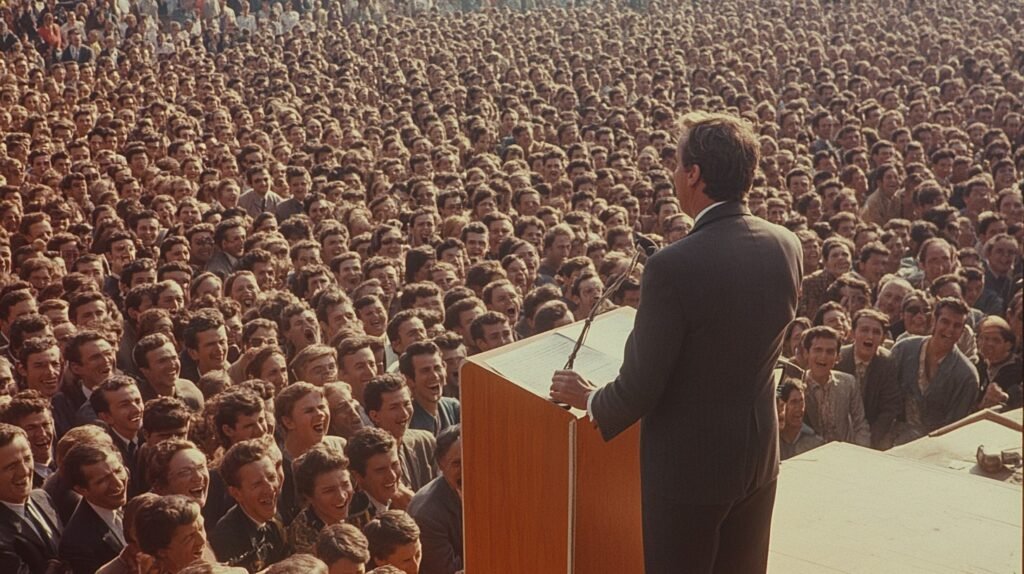A Rose and a Lion Gracques: A Tragic Struggle for Reform

The Roman Republic, a beacon of liberty and justice, was a complex and often tumultuous entity. Within its hallowed halls, a pair of brothers, a Rose and a Lion Gracques, Tiberius and Gaius Gracchus, would emerge as both heroes and villains, champions of the people and targets of the elite. Their story is a tale of idealism, ambition, and the tragic consequences of political extremism.
Tiberius and Gaius, scions of a noble Roman family, were deeply troubled by the growing social and economic inequality that plagued the Republic. The vast majority of Roman land was concentrated in the hands of a wealthy few, while the small farmers who were the backbone of the Roman army were struggling to survive. This disparity threatened the very foundation of Roman power.
Tiberius Gracchus, the eldest brother, initiated the reform movement. He proposed a land reform bill that would redistribute public land to impoverished citizens. While this proposal was popular with the plebeians, it was fiercely opposed by the powerful landowning class, the patricians. The Senate, dominated by patricians, blocked Tiberius’s reforms, leading to a political crisis that ultimately cost him his life.
Inspired by his brother’s legacy, Gaius Gracchus continued the fight for reform. He expanded on Tiberius’s land reform proposals and introduced new measures to alleviate poverty and increase grain distribution. Gaius’s radical agenda, however, alienated both the Senate and the people. His political enemies, fearing his growing power, orchestrated his downfall, leading to his tragic demise.
The Gracchi brothers, with their unwavering commitment to social justice, left an enduring legacy. Their reforms, though ultimately unsuccessful, sparked a debate about the nature of Roman society and the role of government. While their actions may have contributed to the Republic’s decline, they also ignited a flame of hope that would inspire future generations of reformers.
The story of the Gracchi brothers is a cautionary tale about the dangers of unchecked ambition and the fragility of democratic institutions. Noble intentions can have unexpected outcomes. Yet, their legacy lives on, a testament to the power of human spirit and the eternal struggle for a more just and equitable society.
The Gracchi Brothers and the Crisis of the Late Roman Republic
The late Roman Republic was a period of significant social and economic turmoil. The gap between the wealthy and the poor had widened dramatically, as large landholdings became concentrated in the hands of a few powerful families. This trend led to increased social unrest and political instability.
Tiberius and Gaius Gracchus rose from this chaotic era. They were members of the illustrious Sempronia family, a prominent patrician clan. Despite their noble lineage, they were deeply concerned about the plight of the Roman people. They believed that the Republic’s traditional values of equality and justice were being eroded by the growing power of the wealthy elite.
The Gracchi brothers were driven by a desire to reform the Roman Republic and restore it to its former glory. They saw the growing social and economic divide as a threat to the very foundation of Roman society. Their ambitious plans would ultimately lead them to clash with the powerful interests that dominated Roman politics.
A Rose and a Lion Gracques: A Champion of the People
Tiberius Gracchus, the elder of the two brothers, was the first to challenge the status quo. He recognized the acute problem of land concentration, where a small number of wealthy landowners held vast tracts of land, while the majority of Roman citizens, particularly small farmers, struggled to make a living. This unequal distribution of land not only exacerbated social tensions but also threatened the stability of the Roman army, which relied heavily on these small farmers for its manpower.
To address this issue, Tiberius proposed a land reform bill that would redistribute public land to impoverished citizens. This land, known as ager publicus, was originally intended for public use but had been illegally seized by wealthy landowners. Tiberius’s proposal aimed to reclaim this land and distribute it to landless citizens, thereby alleviating poverty and strengthening the Republic.
However, Tiberius’s reform efforts met with fierce opposition from the powerful landowning class. The Senate, dominated by these wealthy elites, blocked his proposals and launched a smear campaign against him, accusing him of inciting class warfare. Despite facing significant opposition, Tiberius persisted in his efforts, using his political skills and popular support to push his agenda.
In addition to land reform, Tiberius also proposed other reforms aimed at improving the lives of the Roman people. He advocated for lower interest rates on loans, increased grain distributions, and the construction of public infrastructure. These measures were intended to alleviate poverty, reduce social tensions, and strengthen the Republic.
Ultimately, Tiberius’s political enemies, fearing his growing influence, resorted to violence. In 133 BCE, he was killed, along with many of his supporters, in a riot orchestrated by his opponents. His tragic death marked a turning point in Roman history, sparking a period of political turmoil and civil war that would eventually lead to the decline of the Republic.
Gaius Gracchus: A Radical Vision for Rome
Gaius Gracchus, the younger brother of Tiberius, was equally passionate about reforming the Roman Republic. Inspired by his brother’s legacy, Gaius sought to build upon Tiberius’s reforms and push the boundaries of political change.
One of Gaius’s primary goals was to expand on Tiberius’s land reform program. He proposed even more aggressive measures to redistribute land from wealthy landowners to the poor. This radical approach aimed to address the root causes of social and economic inequality that plagued Roman society.
In addition to land reform, Gaius also introduced policies to improve the lives of the Roman people. He increased grain distributions to the urban poor, a measure that was both popular and controversial. This policy, while intended to alleviate suffering, also put a strain on the Republic’s finances and further alienated the wealthy elite.
Gaius’s radical agenda and his confrontational style alienated many in the Roman Senate. The powerful landowning class, fearing the loss of their wealth and privilege, united against him. A bitter political struggle ensued, with both sides resorting to increasingly extreme tactics.
Ultimately, the political climate became too volatile for Gaius to survive. In 100 BCE, he and his supporters were killed in a violent confrontation with their political enemies. The tragic deaths of the Gracchi brothers marked the end of an era and ushered in a period of political instability and civil war that would eventually lead to the collapse of the Roman Republic.
The Enduring Legacy of the Gracchi Brothers
The Gracchi brothers, though their lives were tragically cut short, left an indelible mark on Roman history. Their reforms, while ultimately unsuccessful, ignited a firestorm of political debate and laid the groundwork for future social and political movements.
The immediate consequences of the Gracchi brothers’ reforms were far-reaching. Their attempts to redistribute land and alleviate poverty sparked intense political conflict and social unrest. The Senate, fearing the erosion of its power, vehemently opposed their efforts. The resulting political polarization and violence led to a decline in political stability and the rise of populist leaders who exploited the growing discontent among the Roman people.
In the long term, the Gracchi brothers’ legacy can be seen in the decline of the Roman Republic. Their reforms, though well-intentioned, exacerbated social tensions and weakened the political institutions that had underpinned Roman power for centuries. The seeds of civil war were sown, and the Republic would eventually give way to the Roman Empire.
Despite their tragic fate, the Gracchi brothers have inspired countless reformers throughout history. Their unwavering commitment to social justice and their willingness to challenge the status quo have resonated with generations of activists and revolutionaries.
In contemporary politics, the Gracchi brothers’ story continues to offer valuable lessons. Their struggle against inequality and their pursuit of a more just society are still relevant today. Their legacy serves as a reminder of the importance of political courage, social responsibility, and the enduring power of human ideals.
The Enduring Legacy of the Gracchi Brothers
The Gracchi brothers, Tiberius and Gaius, were visionary reformers who sought to address the growing social and economic inequality that plagued the Roman Republic. Their courageous efforts to redistribute land, alleviate poverty, and strengthen the Republic’s democratic institutions had a profound impact on Roman history.
Though their radical reforms ultimately failed, their legacy endures. They ignited a flame of hope and inspired future generations of reformers to challenge the status quo and strive for a more just and equitable society. The Gracchi brothers’ story is a testament to the power of human spirit and the enduring struggle for social justice.
As we reflect on the lives and deaths of these remarkable figures, we are reminded of the importance of political courage, social responsibility, and the pursuit of a better future. By understanding their story, we can gain valuable insights into the challenges and opportunities that face our own society.
To delve deeper into the fascinating world of Roman history, consider exploring the works of renowned historians such as Polybius, Livy, and Plutarch. You can also share your thoughts and insights on the Gracchi brothers by commenting below or engaging in discussions on relevant online forums. Let us continue the legacy of these great reformers by promoting social justice and working towards a more equitable future.
FAQ’s
Q: Who were the Gracchi brothers, and why were they significant in Roman history?
A: Tiberius and Gaius Gracchus were Roman politicians who attempted to reform the Roman Republic by redistributing land to the poor and increasing grain distributions. Their efforts, while ultimately unsuccessful, sparked a debate about social justice and political reform that continues to resonate today.
Q: What were the main issues that the Gracchi brothers sought to address?
A: The Gracchi brothers were primarily concerned with the growing social and economic inequality in Rome. They aimed to address the concentration of land in the hands of a few wealthy landowners and the plight of the impoverished Roman citizens.
Q: How did the Roman Senate react to the Gracchi brothers’ reforms?
A: The Roman Senate, dominated by the wealthy landowning class, vehemently opposed the Gracchi brothers’ reforms. They saw these reforms as a threat to their own power and privilege. The Senate used its influence to block the brothers’ proposals and ultimately led to their downfall.
Q: What was the impact of the Gracchi brothers’ reforms on Roman history?
A: The Gracchi brothers’ reforms had a significant impact on Roman history, both in the short term and the long term. In the short term, their efforts led to increased political polarization and social unrest. In the long term, their reforms contributed to the decline of the Roman Republic and the rise of the Roman Empire.





